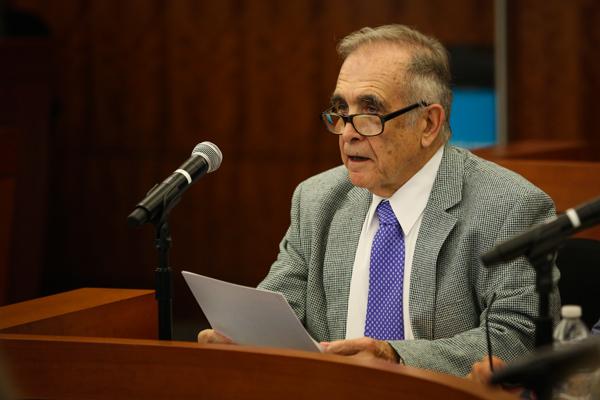University leaders are taking steps to keep faculty in the loop on future changes to health care benefits, after faculty complained they were left out of changes for next calendar year.
Members of the department of human resources and the Faculty Senate said at Friday’s senate meeting that they will adjust the makeup of the Benefits Advisory Committee — the group of employees tasked with providing feedback to the administration on proposed benefits changes — to include equal representation from faculty and staff. Faculty said this summer that they disapproved of changes to GW’s health care options, and they weren’t consulted on the changes until it was too late.
Charles Garris, the chair of the Faculty Senate’s executive committee, said at the meeting that he and the other members of the executive committee will work with Ann McCorvey, the deputy executive vice president and treasurer, to reorganize the committee. The committee will include five faculty members and five staff members, instead of six faculty and 10 staff members like it did this year.
“I realize that a substantial number of faculty members and senate members remain unsatisfied with the current situation and could not believe that the administration is willing to act in a more collaborative way going forward,” Garris said. “But I am very hopeful that the Faculty Senate and administration will be able to work together in good faith for the welfare of the University.”
This year, the University changed health benefit options to offer two plans, the GW PPO plan and a high-deductible plan that was rebranded as a savings plan. These options could result in more out-of-pocket costs and higher deductibles for faculty and staff.
When the new benefit options were announced over the summer, some faculty members said they felt that they did not have adequate time to provide feedback, with many of them not being on campus at the time.
Garris said that he met with human resources leaders last week to create a plan to reorganize the Benefits Advisory Committee and establish more faculty representation.
Harald Griesshammer, an associate professor of physics, said at the meeting that he was concerned about the validity of the changes promised by the human resources department.
“This past summer was a very unpleasant experience for many of us,” Griesshammer said. “Many of us have become increasingly skeptical and disillusioned with human resources when it comes to benefits.”
McCorvey assured the group that human resources leaders want to foster a mutually beneficial relationship with faculty and staff.
“It is our desire to have a more collaborative relationship with the senate,” McCorvey said. “We want to bring something forward that is acceptable and reasonable within our fiduciary responsibility.”







